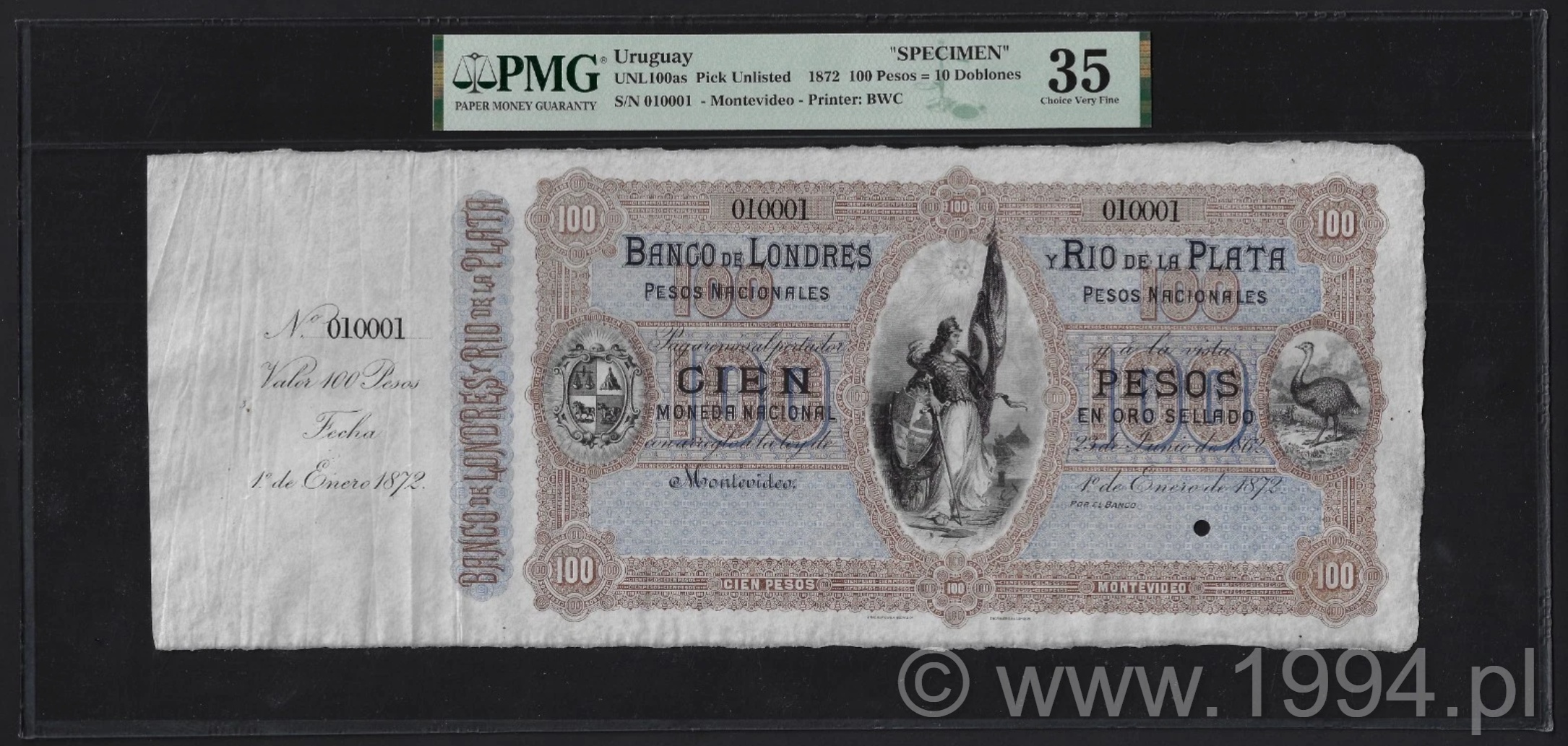Description and research notes
Archival specimen of the 1872 issue of the Banco de Londres y Río de la Plata, denominated 100 Pesos Nacionales with an explicit equivalence to 10 Doblones in gold. This dual denomination was highly unusual in Latin American numismatics, serving as both a circulating promise and a political declaration of Uruguay’s attempt to stabilize paper currency by anchoring it to a fixed gold standard. The experiment was short-lived: by the late 1870s the peso–doblón equivalence had collapsed, making surviving notes a tangible record of one of Uruguay’s boldest but least sustainable monetary policies.
Printed by Bradbury, Wilkinson & Co. (BWC) in London, the note displays oversized format, broad margins, and finely engraved allegories typical of presentation-quality archival pieces. The central vignette of a female allegory with flag and shield reflects national sovereignty, while flanking devices include emblems of trade and native fauna. Wide unprinted borders and specimen cancellations indicate this was never intended for circulation, but rather as an internal printer’s or bank’s archival record. Serial 010001 further underlines its status as an early pull, likely among the very first proofs produced.
This issue symbolizes Uruguay’s monetary experiment of the early 1870s, when the government and private banks sought to restore confidence by pegging paper currency to gold. The doblón equivalence stamped directly on the face was a bold commitment, though one undermined by volatile global bullion markets. Issued notes are extremely rare and almost always found heavily worn, while specimens such as this provide the only pristine reference.
Graded PMG 35 AU and ranked Top Pop, this specimen offers not only immense historical value but also aesthetic appeal. It bridges paper promises and gold credibility, marking the moment when Uruguay’s currency policy was caught between ambition and reality. Today it is regarded as one of the most distinctive 19th-century Uruguayan types and a landmark for collectors of the Río de la Plata region.
